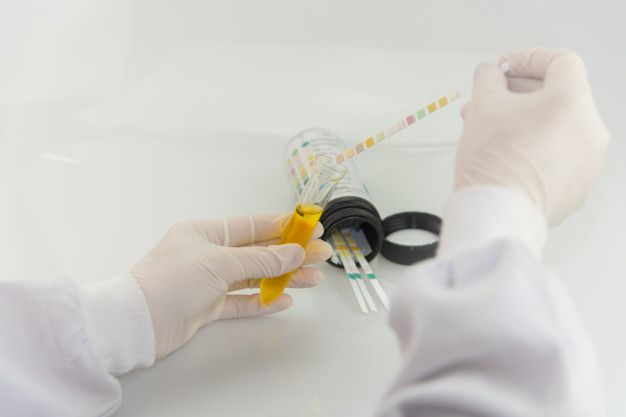Today, European society needs the contribution of universities and other higher education institutions more than ever. Europe is facing major challenges such as climate change, the digital transformation and aging population, at a time when it is hit by the biggest global health crisis in a century and its economic fall-out. Universities, and the entire higher education sector, have a unique position at the crossroads of education, research and innovation, in shaping sustainable and resilient economies, and in making the European Union greener, more inclusive and more digital.
The future of European universities and research, discussed in Paris
On 24 and 25 January 2022, the EU ministers responsible for higher education, research and innovation met in Paris, in the context of the French Presidency of the Council of the European Union.
At a first discussion with professors from the Collège de France, the ministers reiterated the need for transformation in the sector of European higher education so as to respond to existing and future challenges, particularly the green and digital transitions. The ministers also affirmed their intention to support establishments in the process of transformation in order for them to contribute to the major priorities of the EU, such as the European Green Deal, digital decade and industrial strategy.
The ministers also underscored the international dimension of European policy regarding higher education, research and innovation and the importance of cooperating with third countries. With the aim of ensuring a safe and conducive environment for the work of students and international researchers, the ministers recognised the need to promote balanced and reciprocal collaboration with third countries based on shared principles and values.
Lastly, the ministers discussed strengthening inter-university cooperation in Europe, on the basis of the recent proposals made on 18 January 2022 by the European Commission: a European Strategy for Universities and a proposal for a Council Recommendation on building bridges for effective European cooperation in higher education. The ministers pledged full support to alliances such as European Universities and recognized the need to make further progress for the benefit of the entire European sector of higher education, in particular by working towards a unique legal statute to allow universities to deliver European degrees, jointly recruit the best researchers and students at international level and establish joint structures such as state-of-the-art laboratories.
In this respect, the ministers committed to begin work in the coming months to remove the barriers facing alliances such as European Universities, by providing them with a set of instruments and contributing towards securing their future by exploiting synergies between European, national and regional financing mechanisms.
Source: European Council
What is the European Strategy for Universities?
Europe is home to close to 5,000 higher education institutions, 17.5 million tertiary education students, 1.35 million people teaching in tertiary education and 1.17 million researchers. This strategy intends to support and enable all universities in Europe to adapt to changing conditions, to thrive and to contribute to Europe’s resilience and recovery. It proposes a set of important actions, to support Europe’s universities towards achieving four objectives:
- Strengthen the European dimension of higher education and research;
- Consolidate universities as lighthouses of our European way of life with supporting actions focusing on academic and research careers, quality and relevance for future-proof skills, diversity, inclusion, democratic practices, fundamental rights and academic values;
- Empower universities as key actors of change in the twin green and digital transition;
- Reinforce universities as drivers of EU’s global role and leadership.
Building bridges for effective European higher education cooperation
The Commission proposal for a Council Recommendation aims to enable European higher education institutions to cooperate closer and deeper, to facilitate the implementation of joint transnational educational programmes and activities, pooling capacity and resources, or awarding joint degrees. It is an invitation to Member States to take action and create appropriate conditions at national level for enabling such closer and sustainable transnational cooperation, more effective implementation of joint educational and research activities and the European Higher Education Area (Bologna) tools. It will facilitate the flow of knowledge and build a stronger link between education, research and innovative industrial communities. The objective is notably to support the provision of high-quality life-long learning opportunities for everyone with a focus on the most needed skills and competences to face today’s economic and societal demands.
Making it happen: four flagship initiatives
By mid-2024, the European dimension in higher education and research will be boosted by four flagship initiatives:
- Expand to 60 European Universities with more than 500 higher education institutions by mid-2024, with an Erasmus+ indicative budget totalling €1.1 billion for 2021-2027. The aim is to develop and share a common long-term structural, sustainable and systemic cooperation on education, research and innovation, creating European inter-university campuses where students, staff and researchers from all parts of Europe can enjoy seamless mobility and create new knowledge together, across countries and disciplines.
- Work towards a legal statute for alliances of higher education institutions to allow them to pool resources, capacities and their strengths, with an Erasmus+ pilot as of 2022.
- Work towards a joint European degree to recognise the value of transnational experiences in the higher education qualification the students obtain and cut the red tape for delivering joint programmes.
- Scale-up the European Student Card initiative by deploying a unique European Student Identifier available to all mobile students in 2022 and to all students in universities in Europe by mid-2024, to facilitate mobility at all levels.
Source: European Commission
More information:
The structure of the European education systems 2021/22
Education for a greener, more sustainable Europe: Share your ideas!
UAL promotes the Ibero-American Knowledge Space through international telecollaboration
Erasmus+: A success in 2020 in spite of restrictions
Higher Education for smart specialisation. A handbook
HORIZON EUROPE: Specialised education programmes in key capacity areas







Leave a Reply